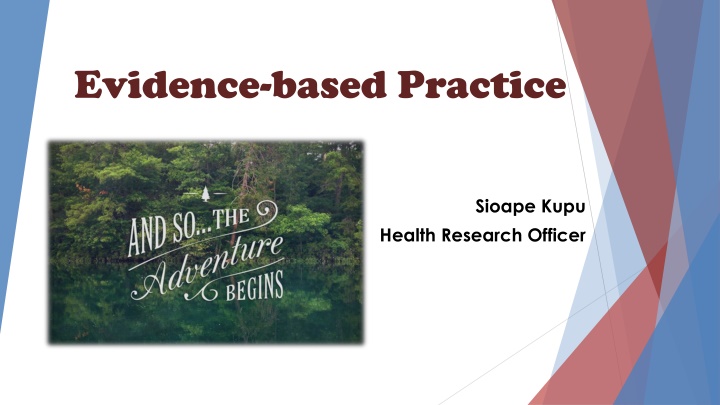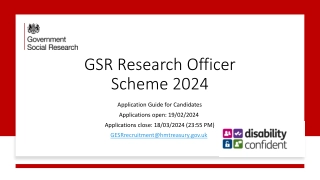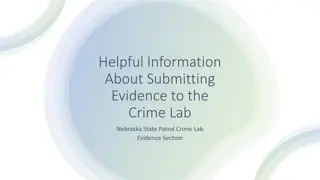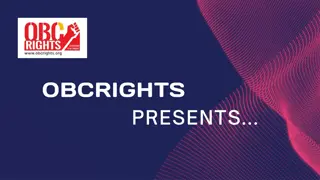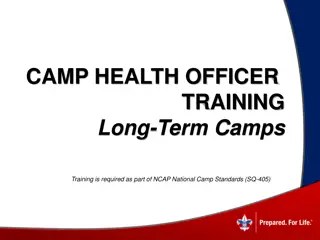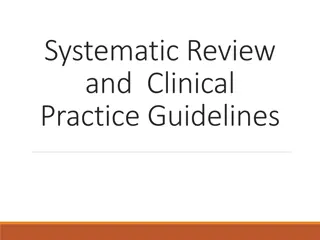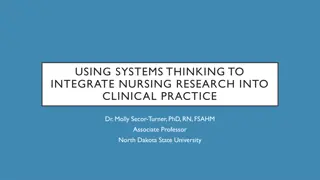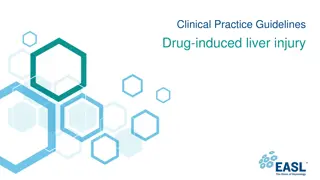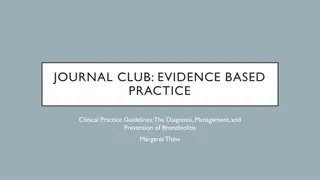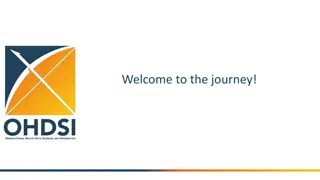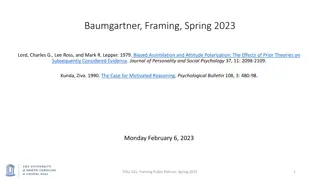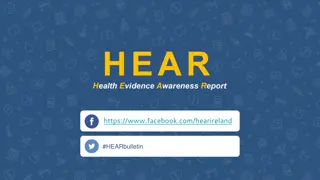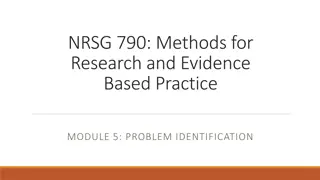Evidence-Based Practice Guidelines for Health Research Officer
Sioape Kupu, a Health Research Officer, introduces ground rules and weekly activities for a course focused on evidence-based practice in health research. The course includes assessments and emphasizes active participation in learning and research activities. Students are encouraged to engage, take notes, and adhere to weekly tasks for successful completion of assignments and examinations.
Download Presentation

Please find below an Image/Link to download the presentation.
The content on the website is provided AS IS for your information and personal use only. It may not be sold, licensed, or shared on other websites without obtaining consent from the author.If you encounter any issues during the download, it is possible that the publisher has removed the file from their server.
You are allowed to download the files provided on this website for personal or commercial use, subject to the condition that they are used lawfully. All files are the property of their respective owners.
The content on the website is provided AS IS for your information and personal use only. It may not be sold, licensed, or shared on other websites without obtaining consent from the author.
E N D
Presentation Transcript
Evidence-based Practice Sioape Kupu Health Research Officer
Introductions Sioape Kupu (PGDipPH, BHSc, CertPH, MHL) Health Research Officer Graduate for the Ministry of Health Secretary to the National Health Ethics and Research Committee (NHERC) Supervisor for the Cancer Registry (Ministry of Health) E-mail: sfkupu@health.gov.to sioapekupu@gmail.com Ext. 1424
Ground Rules Respect one another Open-discussion Do not be shy to voice your opinion There are no right or wrong answers Feel free to stop me or ask questions whenever you feel or wait until the end. If you have problems with the course or need clarification of concepts etc. address them immediately. Interactive class Learning process for all of us!
Ground Rules No Phones during class. Learn to love reading and writing. You re responsible for your own time management. Learn to think outside the box and to critique the insides of the box Get ready for class activities! Read the Course Outline on all specification regarding the course this includes Extensions, Late Submissions, Plagiarism
Take Notes!! Bear in mind all the content throughout the next subsequent weeks are all parts of the first assessment. All content is examinable!!! What we will cover will basically be like the beginning of your assignment we are doing the assignment as we progress and learning along the way.
Weekly Independent Activities There are weekly Independent Activities for you to consider doing during that week. You should adhere to them so that it does not become LAST MINUTE RUSH HOUR PIECE OF WORK! For example: Week 1: Topic, Aim, Objectives You should have a topic, aim, objective by the end of the week. Week 4 is about Research Tools by the end of Week 4 you should have a Research Tool ready. Each Week corresponds to a part in your research proposal and report : Assignment 1 and 2.
Assessments 4 Assessments + 1 Final Examination 1. Research Proposal 10% 2. Research Report 30% 3. Research Dissemination / Presentation 10% 4. Research Appraisal 10% 5. Examination 40%
Day 1 Introduction to Research Sioape Kupu Health Research Officer Graduate
Day 1 Learning Objectives 1) Understand the definition of Research and its concepts; 2) Understand the different Epistemologies; 3) Be able to identify the first elements of the research process; 4) Differentiate between Inductive and Deductive; 5) Understand the process of and be able to develop a Research Question. 6) Understand the FINER characteristics of Research Questions.
What is Research? Research is the systematic and rigorous process of enquiry which aims to describe phenomena and to develop explanatory concepts and theories. Ultimately, it aims to contribute to the scientific body of knowledge (Bowling, 1997). 1) Systematic 2) Rigorous 3) Enquiry 4) Describe phenomena 5) Develop explanatory concepts and theories 6) Contribute to the Scientific body of knowledge
1. Systematic Step-by-step Acting according to a fixed plan or system Being methodical, following a methodology
2. Rigorous To be thorough and careful Being strict and adhering to a system Accurate and precise All aspects are covered No stone unturned
3. Enquiry To investigate To ask questions
4. Describe Phenomena Describe something an event an occurrence a case an object of interest
5. 5. Explanatory concepts Explanatory concepts and theories theories To create ideas that explain the phenomena of interest Or system of ideas or concepts that explain something (phenomena) Knowledge
6. Contribute to the Scientific body of knowledge The new idea or concept (knowledge) that you have gained will add to the overall scientific body of knowledge. A body of knowledge is the sum of what we think we know in an area: Discoveries Books, publications, etc. Arguments, focus etc. It doesn t necessarily exist without people to know it.
What is Research? (Rephrased) Research is the step-by-step and thorough process of investigation aimed at creating/producing new ideas or new knowledge that explains the event or the something of interest. Ultimately, the new ideas found or results obtained will contribute to the overall body of knowledge.
Systematic Rigorous Investigate New Ideas Methodology Protocol Data Collection Analysis Observational (Quantitative / Qualitative) Experimental Validity Interviews Thematic Reliability Questionnaires Descriptive Survey Representative sample Observations Chi-square, ANOVA, Logistic Regression
Health Research Often messy, dealing with fuzzy concepts. Multi-disciplinary Biomedical and clinical Nursing Epidemiology Health systems Sociology Psychology Anthropology History Geography Statistics Health economics
So why do we conduct research? An understanding of research methods is fundamental to any career in health, and especially for those wishing to pursue higher degrees. The most reliable way of improving health outcomes is through continuous, rigorous, credible and varied health research that involves different people and communities. When something doesn t work conduct research/evaluation. Areas of highest disease burden, such as low-income countries, stand to gain the most from health research as there is the greatest potential for improving health in numerical terms, and there is enormous possible gain from relatively simple interventions. Provides evidence to base our decisions on or informed decision making or in the clinical field Evidence-based practice (EBP).
So why do we conduct research? Allow knowledge to be gathered about health and its determinants. Support and enhance the performance of health services (and health systems more generally) - Evaluation It also helps establish policies around the organization, administration and legislation of health services. When you have high quality evidence to support your claims, your claim becomes solid. So research has a strong health policy link. It helps you understand the world around you, even the unknown. Without research, we won t know new and innovative ways to move forward, to be more efficient more effectively. Ultimately you gain insight and knowledge.
Knowledge through Research Scientia potentia est: Knowledge is Power. Sir Francis Bacon (1561-1626, English philosopher, statesman, and scientist) The more extensive a man s knowledge of what has been done, the greater will be his power of knowing what to do. Benjamin Disraeli (1804-1881, British Prime Minister)
Half of what you ll learn in medical school will be shown to be either dead wrong or out of date within five years of your graduation; the trouble is that nobody can tell you which half so the most important thing to learn is how to learn on your own David Sackett, Father of evidence based medicine See http://www.bmj.com/content/327/7429/1430 for more
Think for yourself!! Polonius - to his departing son Laertes in Shakespeare's Hamlet. The speech contains much excellent advice, but is however embodied as To thine own self be true. Everybody but perhaps especially medical students experiences pressure to be somebody else.
Paradigm There are many different Paradigms Complex
Paradigm Epistemology The theory of knowledge - Crotty (1997) How knowledge is developed? How you think? Why do you think that way?
Epistemology 1) Objectivism Meaning (reality) exists independently of consciousness and awareness. The truth can be measured, quantified and applies to all cases. 1) Subjectivism The nature and existence of everything depends on our subjective awareness of it. The subject gives meaning to the object, not from nothing, but from collective thoughts, dreams, important meanings. 1) Constructivism Truth and meaning comes into existence in and out of our engagement with the realities of the world. Meaning (reality) is not discovered, it is constructed.
Paradigm Objectivism Meaning exists in the world
Paradigm Constructivism Meaning comes from our interactions with the world
Paradigm Subjectivism We impose meaning on the world
Paradigm Assumes that researchers work in communities with different thought processes. Results are generated and interpreted within the paradigm Results that do not fit are put to one side and left/ignored (anomalies). Occasionally, the volume of facts that don t fit lead to a sudden, violent paradigm shift.
Theoretical Perspectives The philosophical stance informing the methodology and thus providing a context for the process and grounding its logic and criteria. - Crotty (1997) Different perspectives: Positivism Non-positivism Critical inquiry Feminism Postmodernism etc.
Theoretical Perspective Non-Positivist Positivist Deductive Unitary Objective waiting to be discovered The world exists independent of our ways of knowing it The researcher is seen as the neutral observer Inductive Multiple constructed realities The researcher is subjective Knowledge is not independent of ourselves
Deductive vs. Inductive Deductive Inductive Start with a theory which guides the observations Theory Observations. If theory is wrong, all results gained from it are wrong. One counter-example is enough to destroy the theory Start with observations which lead to the creation of a theory Observations Theory All conclusions through inductive reasoning are limited by the scope of the sample, making them susceptible to being wrong. Limited by how far our observations are
Hypothetic-Deductive method Identify Research question (subject area) Generate hypothesis (theory, prior results) Identify testable predictions Propose method for testing Set criteria for retaining/rejecting hypothesis Gather data, carefully Observe and interpret results Retain/reject hypothesis Theory Deductive Inductive Observations / Results
1. Topic, Problem and Question Conceptualizing Phase 1) Research Topic 2) Research Purpose 3) Theories and literature 4) Concepts and variables 5) Research Question It s important to define what you re going to do with the information. Knowing how you ll use the data also helps you determine what questions you re going to ask.
Research Topic Select a topic (any topic), based on; Real-world observations/events Theory Curiosity Imagination Gaps in the Literature Usually from existing literature and theories A literature review should usually inform the nature and scope of the topic / question To identify relevant theories and gaps in our knowledge. Example Cancer? Sexual health services?
Research Purposes Why are we conducting this research? At this stage you a fair idea of the research question. Exploratory Usually for new areas of discovery to obtain some idea or knowledge about the area of interest E.g. Perceptions of young males on sexual health centers in Tonga (assuming it is a totally novel area of research) Descriptive Simply to describe a situation/ event or providing a snapshot of what is of interest E.g. The prevalence of Cancer in Tonga. Explanatory To obtain a relationship between an exposure and an outcome or an independent variable and a dependent variable E.g. The relationship between poverty and cancer.
Theories and literature Background research on the topic. Involves reading articles and reports Acquire the theories regarding the topic within the literature. Identify gaps in the literature, gaps in knowledge, methodology etc. Literature also helps to identify important concepts and variables to measure/control
Concepts and variables Concepts are abstract ideas, or ideas formed in the mind (often not directly observable) Dimensions are aspects of a concept Identify measurable variables from the Concepts.
Doctor-Patient Satisfaction Health-Care Environment Medication Nursing Practice (Concept) Nursing- Patient Care
Nurse-Patient Care/ Service Delivery <Variables> Respect and Courtesy Communication Hospitality Services Survey Questionnaires Likert Scales Tick-boxes Paper-based Patient Satisfaction <Concept>
Growth / Development (Variables) Number of Services Delivered (Variables) Attendance (Variables) Use of Sexual Health Centers (Concept) Economic Factors (Variables)
Attendance <Variables> Numbers of regular patients going to Sexual Health Centers Numbers of new patients using the services provided by the Centers Which services are used most? Reasons for non-attendance Use of Sexual Health Centers (Concept) Survey / Interviews Questionnaires Likert Scales Tick-boxes Paper-based
Research Question Research Questions The first step in conducting research is to establish what the research question is Select paradigm Within paradigm, select methods Why do we need research questions? Focus Gives direction and consistency Provide a framework for writing up the findings Delimit Guide the data collection
Research Question State the research problem A broad and general framework Usually based around a specific issue or theory Turns the topic into a question Not detailed enough to indicate a suitable method THINK ABOUT WHY IT IS A PROBLEM!!! What are the social factors that influence the use of sexual health services? Effectiveness of treatment options for breast cancer patients in Tonga? Research Topic Research Question??
Research Question Define the research question more carefully (Refinement) -> Define population -> Define variables Provide the details to the research question Clarifies the Research rationale. Not to be too specific as to excessively limit you!! How does peer pressure influence young males (17-25 years) attendance at sexual health services in Tonga? What is the experience of Tongan breast cancer patients (25+ years) after referral for treatment overseas? What is the role of Electronic Health Records in patient care?
